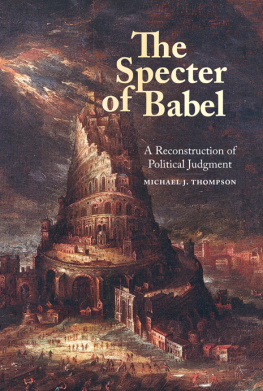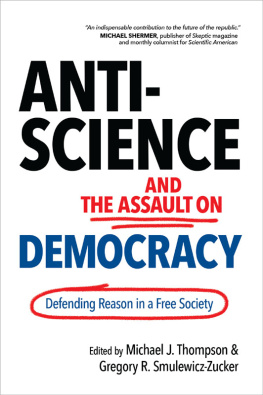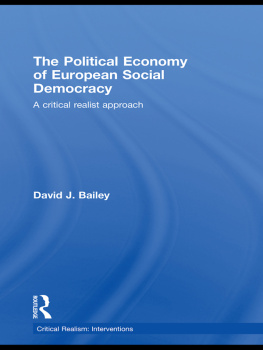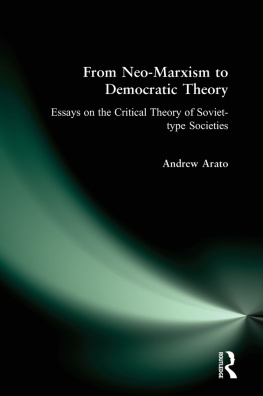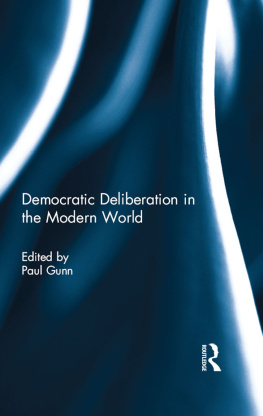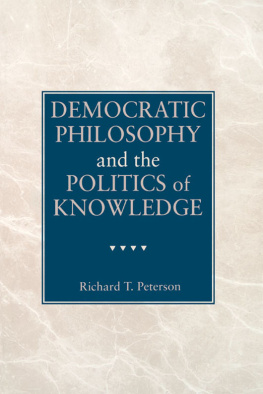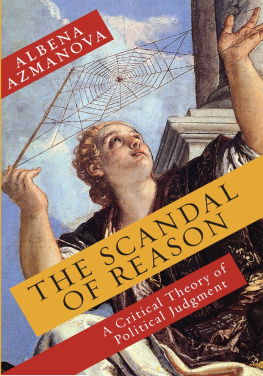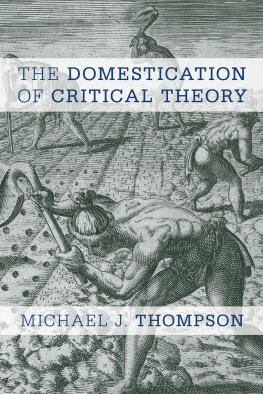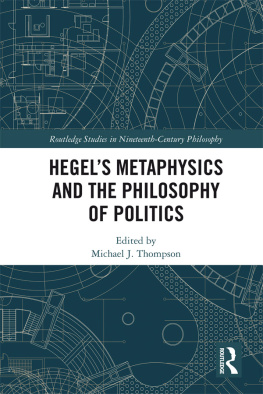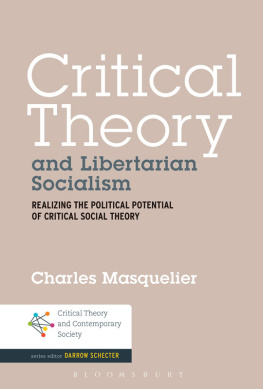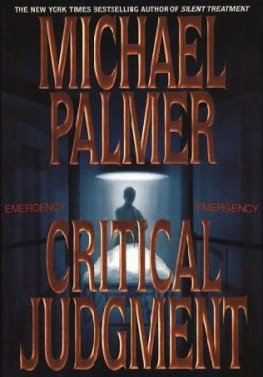Published by State University of New York Press, Albany
2020 State University of New York
All rights reserved
Printed in the United States of America
No part of this book may be used or reproduced in any manner whatsoever without written permission. No part of this book may be stored in a retrieval system or transmitted in any form or by any means including electronic, electrostatic, magnetic tape, mechanical, photocopying, recording, or otherwise without the prior permission in writing of the publisher.
For information, contact State University of New York Press, Albany, NY
www.sunypress.edu
Library of Congress Cataloging-in-Publication Data
Names: Thompson, Michael, 1973 author.
Title: The specter of Babel : a reconstruction of political judgment / Michael J. Thompson.
Description: Albany : State University of New York, 2020. | Includes bibliographical references and index.
Identifiers: LCCN 2020000966 (print) | LCCN 2020000967 (ebook) | ISBN 9781438480350 (hardcover : alk. paper) | ISBN 9781438480374 (ebook)
Subjects: LCSH: Critical theory. | Social sciencesPhilosophy. | Ontology. | Political sociology.
Classification: LCC HM480 .T463 2020 (print) | LCC HM480 (ebook) | DDC 306.2dc23
LC record available at https://lccn.loc.gov/2020000966
LC ebook record available at https://lccn.loc.gov/2020000967
10 9 8 7 6 5 4 3 2 1
For the seekers of true justice
,
Preface
This book is technical in nature, but its subject matter is far from scholarly or obscure. It concerns the problem of judgmentthat activity of discerning those forms of politics and society that are worthy of our rational obligations and those that warrant our disobedience. It concerns our capacity to think through defective and pathological forms of our social world and how they shape our individuality and the kinds of lives we live. I contend that modern political societies are losing their collective capacity for judgment, and that the ideal of the individual as an agent of conscience and reason is in peril. Regaining critical judgment through a more coherent and more radical conception of ethics and value is the central subject of my investigation, one that I hope will spark renewed interest in the paradigm of critical social ontology and its relation to critical reason.
For many years, I have been troubled by the remarkable lack of critical consciousness and judgment displayed by modern citizens, especially during the early decades of the present century. Reckless wars, senseless material consumption, the toleration of staggering economic inequality, utter passivity in the face of human-generated climate change, the loss of thousands of animal and plant species, new forms of populism, the resuscitation of old prejudices, and a new penchant for authoritarianism, among so much more, all point toward a crisis in the ethical and political culture of modern societies. Conformity (no less than indifference) marks the modern personality as autonomy and critical reason have receded as cultural values. As a partisan of the Enlightenment and critical reason, I see it as essential that we question how contemporary philosophy has engaged the question of political judgment in particular and practical reason in general.
My firm conviction is that the dominant approach to ethical questions that pervades contemporary philosophy and culture is misguided and cannot serve as the basis for a critical fulcrum against the imperatives and forces of technological, administrative-capitalist society. I mean critical in the sense that reason has more than a capacity to be reasonable, it must also, as Marx emphasized, go to the root of social phenomena, that is, the features and dynamics of human social being.
As such, I assert that our ideas about practical reason, about ethics itself, have lost their way. Because of this, I believe something new is required. A new paradigm for thinking about practical reason in critical terms and granting to our critical capacities a kind of ethical coherence and vision for a more just, more emancipated society. The political and ethical crises of the first half of the twentieth century gave rise to a renewed project to establish a form of practical reasoning that would no longer rely on metaphysics, established truths that were posited as transcendent to human life and action. At the same time, an emerging liberal social contract meant that radical ideas rooted in human emancipation from an alienating and dehumanizing social order no longer served as a valid political aspiration. A move toward language, pragmatism, intersubjectivity, identity, pluralism, and the political were articulated in this period. The symbolic took center stage, and the premise was put forth that social change and social critique should be grounded in the intersubjective, noumenal layer of human praxis rather than the actual structures of power that were constitutive of society.
Now with economic problems of distribution largely viewed as solved by the welfare states of Western capitalist democracies, we were free to formulate theories of practical reason, where the exchange of reasons and the recognition of the identity of the other were of paramount importance. Gone was the need to thematize the totality as a reifying process; gone, too, was the idea that the working class could be the political agent for social transformation. But recent changes in our political economy have made evident that this was indeed only a temporary phase. The rise of neoliberalism has revealed once more the exploitative nature of capitalist accumulation and the antidemocratic impulses of a social order based on technical-administrative institutional control even as the reactions to its extractive and managerial logics have spawned a new phase of populism and social unreason.
In short, the mainstream philosophical project that effected a shift toward postmetaphysics and nonfoundationalism has been, in my view, a wrong turn in our thinking about judgment and practical reason as a whole. As we witness the inflammation of the neoliberal social order, where a rise in identity politics, racism, neo-authoritarianism, and other antidemocratic forces are becoming prevalent, the need for critical judgment is even more crucial. The temptation to follow the group, to allow the experiences of ego-threat to impel us into the confines of some group identity is further eroding the practice of judgment and critique. We can see, I maintain, that the lack of foundations and grounding for our ethical life pushed by the postmetaphysical turn has left us with little armature for this struggle. My suggestion in what follows is that we reground our ideas about judgment and practical reason in a critical social ontology; that we look at ethical value not as a matter of discursive concern but as rooted in the forms of social reality we inhabit and how these social forms either promote or debase the development and flourishing of our capacities. In short, a return to an ontological conception of the species as a basis for ethics can be achieved and, I believe, grant us a more critical theory of consciousness and ethics, one dearly needed in times of rising nihilism and ethical incoherence.

